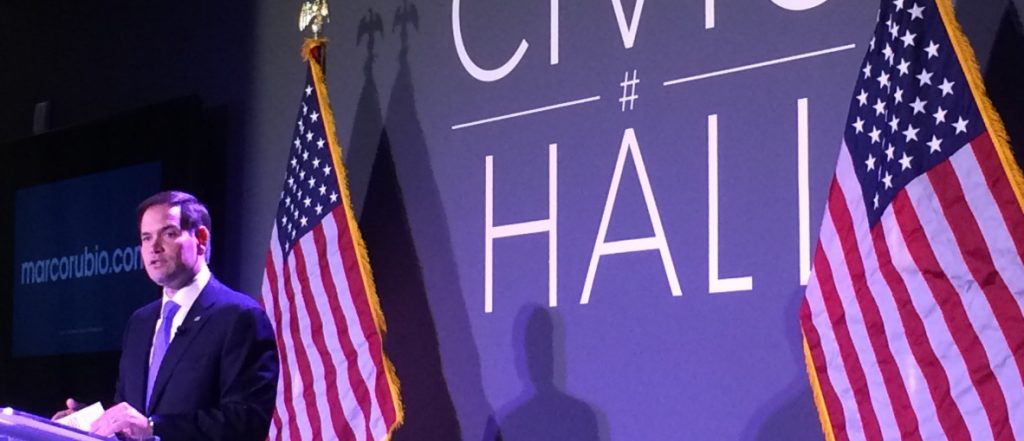WORK WITH
- MICAH L. SIFRY
- October 8, 2015
- 5:26 pm
Platform co-ops get a conference; New Yorkers, do you have fast, reliable, affordable internet? Set the record straight; and more.
This is civic tech: Civicist contributing editor Laurenellen McCann writes about the work of the Center for Technology and Civic Life with election administrators around the country, and how they “decided to prioritize co-production above tool production,” letting the administrators guide the process. The result is ELECTricity: “A learning community of election officials who believe that technology can improve our democracy.” McCann says this is a model of “build with, not for” civic tech, and adds that “we have more collaboration we need to do if we want our civic work to truly be transformative. We have to learn how to work not just with tech communities and particular government partners of interest, but also in deep partnership with the wide array of civic actors and organizations already enmeshed and working in the democratic landscapes we are trying to affect.”
Do you have a story or an op-ed you want to write for Civicist? Send your idea pitch to our managing editor, Jessica McKenzie at jessica-at-civichall-dot-org.
Trebor Scholz and Nathan Schneider preview in FastCoexist their November conference here in New York on the rise of platform co-ops (which Civic Hall is co-sponsoring). They write, “there is also a movement underway to create a real sharing economy online, one in which people can truly co-own and co-govern the platforms they rely on. This means bringing together new technology with the long history of democratic, cooperative enterprise.”
Steve Vance recounts the history of Chicago’s 311 system, which is now likely to be privatized if Mayor Rahm Emanuel gets his way.
Attention New Yorkers: Susan Lerner of Common Cause NY writes:
“We all know that New Yorker residents need access to affordable, reliable, high-speed internet. It’s not possible to grow New York’s tech sector without cutting edge telecom infrastructure. Unfortunately, our regulatory agencies are completely out of touch. A recent “study” by the New York State Public Service Commission painted a glowing picture of the quality and breadth of options available to New Yorkers, touting that New Yorkers have low price telecom options available. Has that been your experience? Now, you have a chance to set the record straight by commenting on your experiences with internet and other telecom services in NY.”Tech billionaire and Brigade founder Sean Parker is gearing up to draft and back a marijuana legalization initiative for the California 2016 ballot, Max Cherney reports for BuzzFeed. Parker’s Founders Fund has invested Privateer Holdings, a holding company for cannabis start-ups. Two other moguls who also have a financial interest in legalization, Justin Hartfield of Weedmaps (the “Yelp for pot shops”) and Joby Pritzker (of the family that owns the Hyatt chain), are also reportedly involved.
Indonesia’s citizens are starting to use an app called Qlue that enables them to post photos of broken public services, reports Today Online. The governor of Jakarta has ordered city authorities to respond to complaints made through the app.
Tech and the presidentials: Alyssa Bereznak reports for Yahoo Politics on Revolution Messaging’s Scott Goodstein, Arun Chaudhary, Tim Tagaris, and Michael Whitney, the core of Bernie Sanders’ digital team.
With the first Democratic presidential candidate coming up next Tuesday, CNN is inviting the public to submit questions via Facebook or Instagram.
Robinson Meyer of the Atlantic zings law professor Lawrence Lessig for running a fantasy campaign.
Brave new world: Former Reuters journalist Matthew Keys has been convicted of three counts of computer hacking, for posting login credentials to the L.A. Times website (which led to an article being defaced for 40 minutes), Sarah Jeong reports for Motherboard. He now faces up to 25 years jail time under the Computer Fraud and Abuse Act. (h/t Edward Snowden)
Jobs and transitions: Former White House chief technology officer Aneesh Chopra has joined the Albright Stonebridge lobby shop.
Code for America is hiring a director for its communications and engagement focus area.
The State of Massachusetts Office of Information is hiring a civic UX designer and a civic back-end web developer.
The Democracy Fund is seeking a vice president of strategy, learning, and impact, along with several other administrative positions.



